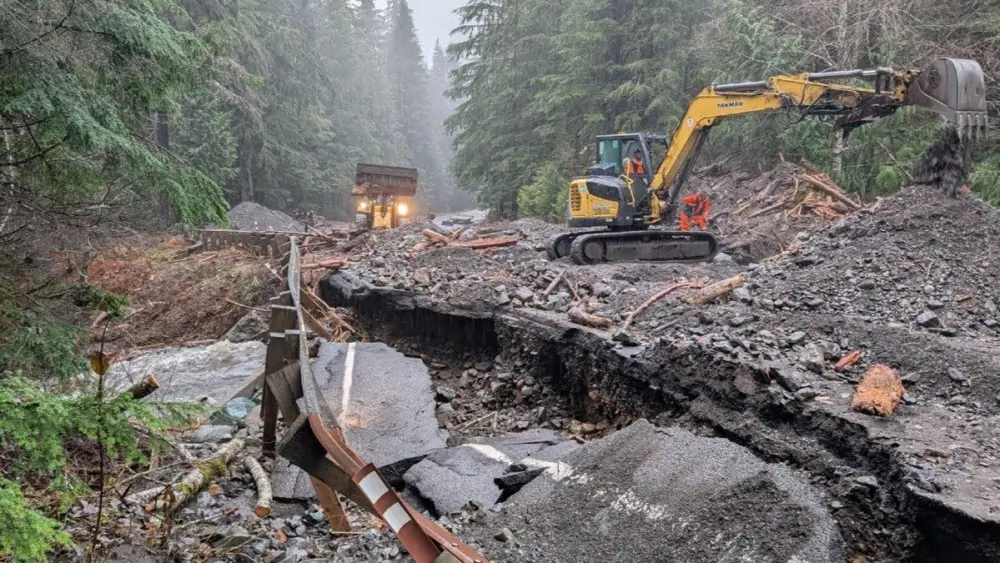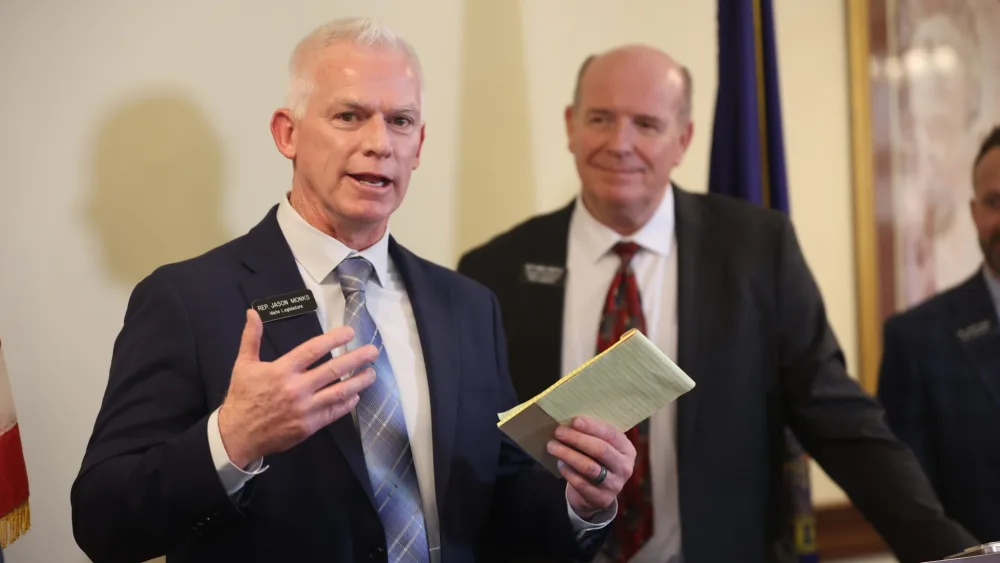OLYMPIA, WA – A public utility in Mason County has started labeling its power poles hoisting fiber-optic cables so thieves don’t mistake the lines for expensive copper wire.
“This wire is steel core, not copper,” the notice reads. “It has no scrap value!”
The public notice is a step Mason County’s Public Utility District No. 3 is taking to respond to the destruction of cables as wirecutters get increasingly brazen. In one case, a Thanksgiving Day copper wire theft from underground electrical vaults on the Tahuya Peninsula left around a thousand homes without power.
“These aren’t isolated incidents; copper theft is increasing across Mason County,” Justin Holzgrove, director of engineering and utility services at the PUD, told a state Senate committee this month. “Despite requirements for ID, waiting periods and recordkeeping, copper continues to be stolen and resold with ease. And this tells us that the current protections are either not enforced, too easy to bypass or too lenient to matter.”
Daniel Grisim, a security manager at Comcast, told senators the issue has “risen to a crisis level” over the past few years as copper prices have soared. In some cases, would-be thieves are going to great lengths to cut fiber-optic cables, not realizing they’re not copper and lack scrap value.
Lumen sees more copper theft in Washington than any other state, with 350 incidents this year, compared to 146 all of last year, forcing the company to deploy “covert video surveillance and GPS tracking alarms in high-risk areas,” spokesperson Sarah Wix said in an email.
Washington state lawmakers are toying with possible solutions to discuss in the 2026 legislative session set to begin in January.
Holzgrove wants the state to require regular, unannounced audits at scrapyards, heightened penalties for theft targeting critical infrastructure and proof of ownership for those selling scrap copper wire. He also wants payments for copper to be via delayed check only.
A bill proposed this year looked to add civil penalties for scrapyards that make deals for stolen copper used in telecommunication cables, but it failed to gain traction in the Legislature despite bipartisan support.
Rep. Cindy Ryu, D-Shoreline, is leading a workgroup working on proposals to bring to the Legislature next year. Potential legislation looks to balance harsher criminal punishments with increased requirements on scrap metal businesses, she said.
She also wants to better develop a “no-buy” database that scrapyards can use to see if prospective sellers have criminal convictions for theft and similar crimes.
Under current state law, metal sellers aren’t allowed to remove or alter identifying material on the metal they’re selling or falsely declare the metal isn’t stolen. And scrapyards aren’t allowed to purchase metal from a known theft, a minor or someone who is obviously under the influence of alcohol or drugs.
Legislation approved in 2022 also aimed to strengthen regulations on scrapyards in the wake of a nationwide spate of catalytic converter thefts from cars that coincided with increases in the prices of the precious metals they contain.
Sean Daoud, of the Recycled Materials Association, suggested utilities and telecom providers imprint their names on wire. This would make it easier for scrapyards to identify stolen metal.
In one theft example, thieves wore lineworker uniforms, drove a utility truck and provided a fabricated invoice to fool a scrapyard into buying stolen wire, said scrap recycling lobbyist Holly Chisa.
In yet another instance, Mason County’s Public Utility District No. 1 is now on its third go-round running broadband cable funded by a state grant after it’s been cut, said General Manager Kristin Masteller. Each time, the state has had to reimburse the utility for repairs. This time, the utility raised the lines as high as possible to try to deter theft.
Copper wire theft has also disrupted Sound Transit light rail service this summer.
The threat from this is threefold. First, it disrupts service to customers, not to mention potentially emergency services. Second, it’s expensive to repair. And third, it puts the safety of lineworkers and the people stealing the wire at risk.
“Obviously, it’s a huge inconvenience, and there’s a financial impact,” Masteller said. “But I never want any of our employees to roll up on an outage and find a dead body. That’s terrible, and luckily, we haven’t to date, but it’s a real possibility.”
In one case, a few years ago, someone appeared to suffer severe burns after breaking into one of the utility’s vaults and cutting live wires. A utility crew investigating the incident “expected to see limbs” because of the scene, Masteller recalled.
Grisim emphasized to lawmakers that the consequences of these incidents are far worse than standard property crime.
Wire theft is a particular concern in rural areas like Mason County where miles of line are often left unguarded.
This story first appeared on Washington State Standard.





